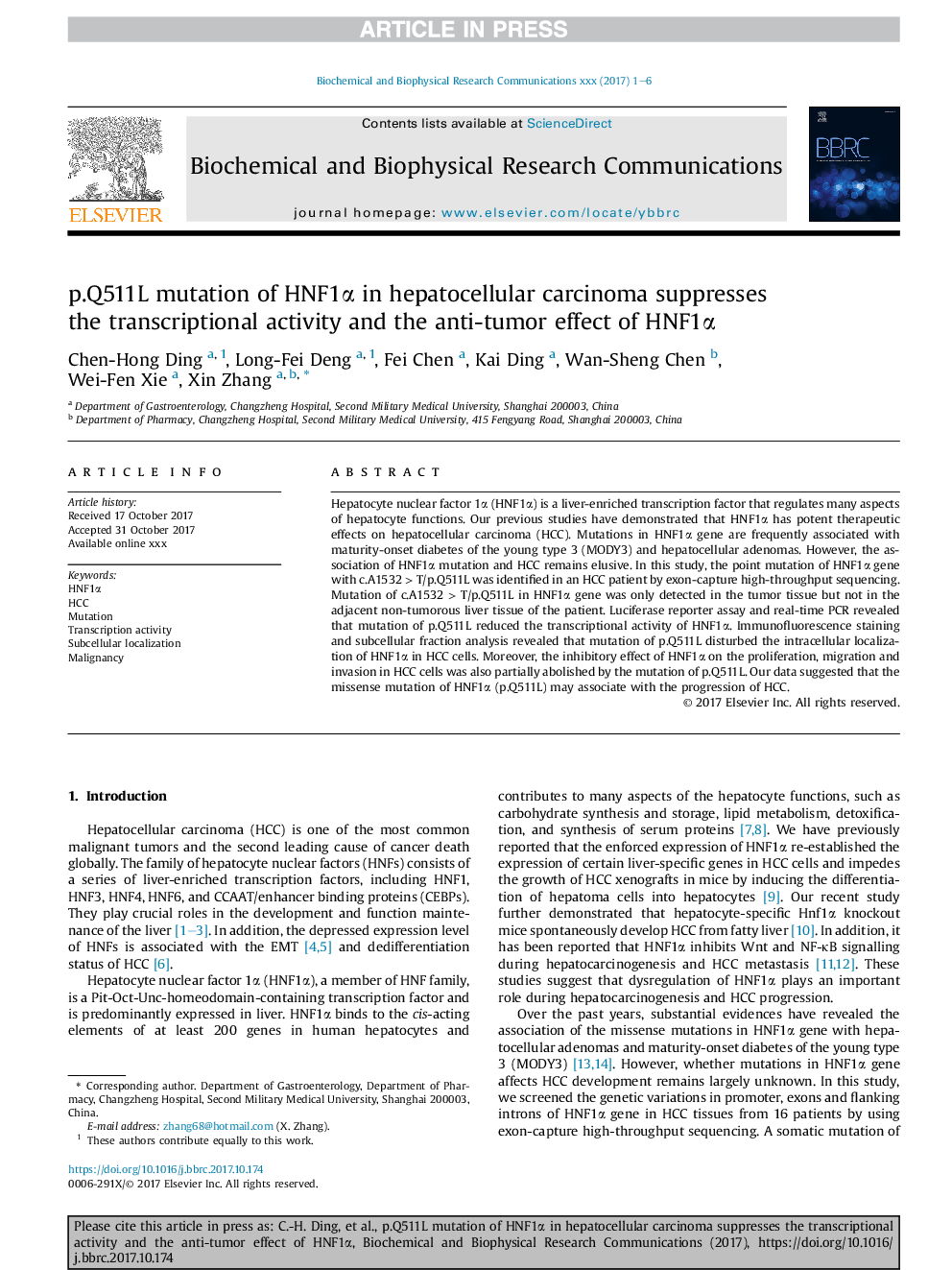| Article ID | Journal | Published Year | Pages | File Type |
|---|---|---|---|---|
| 8295319 | Biochemical and Biophysical Research Communications | 2018 | 6 Pages |
Abstract
Hepatocyte nuclear factor 1α (HNF1α) is a liver-enriched transcription factor that regulates many aspects of hepatocyte functions. Our previous studies have demonstrated that HNF1α has potent therapeutic effects on hepatocellular carcinoma (HCC). Mutations in HNF1α gene are frequently associated with maturity-onset diabetes of the young type 3 (MODY3) and hepatocellular adenomas. However, the association of HNF1α mutation and HCC remains elusive. In this study, the point mutation of HNF1α gene with c.A1532 > T/p.Q511L was identified in an HCC patient by exon-capture high-throughput sequencing. Mutation of c.A1532 > T/p.Q511L in HNF1α gene was only detected in the tumor tissue but not in the adjacent non-tumorous liver tissue of the patient. Luciferase reporter assay and real-time PCR revealed that mutation of p.Q511L reduced the transcriptional activity of HNF1α. Immunofluorescence staining and subcellular fraction analysis revealed that mutation of p.Q511L disturbed the intracellular localization of HNF1α in HCC cells. Moreover, the inhibitory effect of HNF1α on the proliferation, migration and invasion in HCC cells was also partially abolished by the mutation of p.Q511L. Our data suggested that the missense mutation of HNF1α (p.Q511L) may associate with the progression of HCC.
Related Topics
Life Sciences
Biochemistry, Genetics and Molecular Biology
Biochemistry
Authors
Chen-Hong Ding, Long-Fei Deng, Fei Chen, Kai Ding, Wan-Sheng Chen, Wei-Fen Xie, Xin Zhang,
